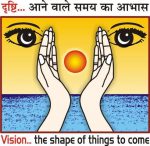
I am often surprised by the lack of innovation in the education sector in the past century. It is most ironic that the same system which has developed us into the most powerful race our planet has ever seen – to some extent, even beyond our own imagination – is itself sluggish and mostly outdated. The need for today’s education is complicated, and it is a subject that is often simply shelved by the over-exhausted parents, teachers, and the system as a whole. However, of late, many organizations and think tanks have gone into finer details and introspection of education as a whole. The NEP 20, WEF Report on Schools of the Future, Education 4.0, and other reports have done considerable research, and we are at least in a position to identify our flaws and even suggest possible solutions. This is definitely commendable progress.
Many of today’s school and college children will work in new job types that do not yet exist, most of which are likely to have an increased premium on both digital and social-emotional skills. They will be introduced to wholly new business models whose workforces are much more distributed. Yet many education systems in developed and developing economies alike still rely heavily on passive forms of learning focused on direct instruction and memorization, rather than interactive methods that promote the critical and individual thinking needed in today’s innovation-driven economy.
Our present education model was largely influenced by the needs of the First and Second Industrial Revolutions; to support mass production, which just required uniform, process-oriented talent for repeated manufacturing jobs. Today we are looking at the Fourth Industrial Revolution, where novel technologies transform the definition of jobs each moment! The education system is facing an existential crisis and needs to transform meaningfully and urgently.
Here we must remember that education still remains a vital differentiator at the social and economic level worldwide. We cannot in any way forgo it but rather need to constructively transform it.
We can distinctly identify a few characteristics necessary for this ‘education for the future’ we are talking about. We need to develop global citizenship skills in our students. We need to have innovation and creativity skills as a vital part of our learning objectives. We need to include content that fosters skills required for innovation, including complex problem-solving, analytical thinking, creativity, and systems analysis. Technology design and programming are two of the key skills that need to be addressed at all levels.
Besides professional skills and cognitive learning, we need to honestly work on developing interpersonal skills in students. Often labelled as soft skills, or non-cognitive skills, these are certainly one of the essential requirements. We also need to focus on a shift towards an approach to learning. We need to emphasize problem-based and collaborative learning. To foster this kind of thinking, education systems will need to shift from a process-based to a problem-based approach to learning.
I fully understand that the above are truly big challenges for any education system. Implementing them needs spirited and whole-hearted support from the entire system. At Vision Group of Institutions, we have included them in our Mission and Vision Statement, in all of our policies, and in our daily efforts. I take the privilege of inviting you all to visit our campus and check out various steps implemented by us.
All the Best!
Vishal P Pandey
Secretary
Vision Group of Institutions
